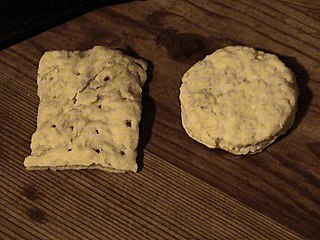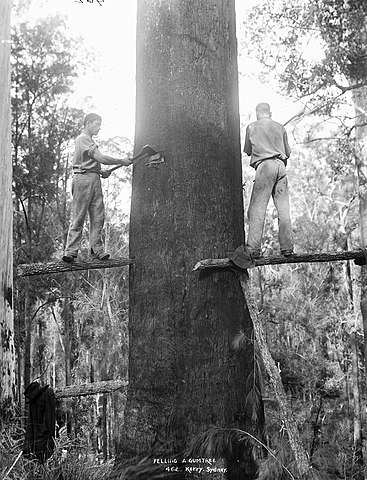 |
| Montana cowboys, c1910 |
Here’s another set of terms and forgotten people gleaned
from early western fiction. Definitions were discovered in various online
dictionaries, as well as searches in Cassell’s Dictionary of Slang,
Dictionary of the American West, The New Encyclopedia of the American West, The
Cowboy Dictionary, The Cowboy Encyclopedia, Vocabulario Vaquero, I Hear America
Talking, Cowboy Lingo, and The
Shorter Oxford English Dictionary.
These are from Martin Allerdale Grainger’s Woodsmen of
the West, about loggers in British
Columbia, Charles G. D. Roberts’ The Backwoodsmen, a collection of frontier animal stories, and Ada
Woodruff Anderson’s The Heart of the Red Firs, about settlers in the backwoods around Puget Sound.
Once again, I struck out on a few. If anyone has a definition for “prince-pally
cake,” leave a comment below.
 |
| U.S. Navy bluejackets, 1917 |
bluejacket =
a sailor in the navy. “Dan Macdonnell was
a quiet, steady man; big-chested, active, cheerful, like the better sort of
bluejacket.” Martin Allerdale Grainger, Woodsmen of the West.
catkins = a usually dense, cylindrical, often drooping cluster
of flowers found in willows, birches, and oaks. “Soft, wet and tender, with a
faint green filming the sodden pasture field, and a rose-pink veil covering the
maples, and blue-grey catkins tinting the dark alders, spring had come.”
Charles G. D. Roberts, The Backwoodsmen.
.jpg) |
| Catkins |
chevaux-de-frise =
an obstacle composed of barbed wire or
spikes attached to a wood frame, used to block enemy advancement. “Door and
bridge together were encircled by a chevaux-de-frise of woodwork
with sharp, radiating points of heavy telegraph wire.” Charles G. D. Roberts, The
Backwoodsmen.
curate’s egg =
something with good and bad qualities.
“Sometimes I wish she had been less of a jest, less like the curate’s egg.”
Martin Allerdale Grainger, Woodsmen of the West. Explanation of the term at Wikipedia
 |
| Chevaux de frise, 1864 |
dead-water =
a phenomenon that can occur when a layer
of fresh or brackish water rests on top of denser salt water, without the two
layers mixing. “The last mile of the river’s course before joining the lake
consisted of deep, smooth ‘dead-water’.” Charles G. D. Roberts, The
Backwoodsmen.
draw the longbow =
to exaggerate, tell tall tales. “I hate to
tell you all about the Sonora, because she was so humorous, and you will think
I am piling it on, drawing the long-bow.” Martin Allerdale Grainger, Woodsmen
of the West.
fire rake =
a long-handled
combination rake and cutting tool, the blade of which is usually constructed of
a single row of four sharpened teeth. “Then there would be a noise of
fire-rake, and Bill could be heard hurling wood into the furnace.” Martin
Allerdale Grainger, Woodsmen of the West.
garden sass =
vegetables, particularly those used in
making sauces. “Its only garden was a spacious patch of cabbages and ‘garden sass’
three or four hundred yards down toward the edge of the forest.” Charles G. D.
Roberts, The Backwoodsmen.
horrors, the =
delirium tremens. “I had to give him a
dose or two of bromide, as he was getting shaky, from much whisky, and I feared
the horrors might come.” Martin Allerdale Grainger, Woodsmen of the West.
in high feather =
in good spirits. “The tireless little
animal followed him along the fence rails for perhaps a hundred yards, seeing
him off the premises and advising him not to return, then went back in high
feather to his task.” Charles G. D. Roberts, The Backwoodsmen.
larrigan =
a moccasin with knee-high leggings made of
oiled leather. “He arose, recovered the thongs of his larrigans from the futile
snare, and made his way back on the trail as fast as he could flounder.”
Charles G. D. Roberts, The Backwoodsmen.
 |
| Marie Corelli |
Master Christian, The = a novel by
popular English writer, Marie Corelli (1855-1924), published in 1900. “The
humour of a Sunday paper, Ouida, “The Duchess,” “The Master Christian,” Science
Jottings, the Nineteenth Century would carry Bill, all equally, into some weird
fairyland.” Martin Allerdale Grainger, Woodsmen of the West.
nawitka = Chinook word for yes, indeed, for sure. “Nawitka, I
come straight ’way home.” Ada Woodruff Anderson, The Heart of the Red Firs.
“Old Settler, The” =
a folk song originating in the Northwest
of the U.S., written by Francis D. Henry, c1874; also called “Acres of Clams.”
“‘Oh, let him erlone,’ said Mill Thornton, lifting his tankard and including
the company with a bland smile. ‘He’s goin’ ter sing their Ole Settler fur
us.’” Ada Woodruff Anderson, The Heart of the Red Firs. Listen here.
oolican = eulachon, an ocean fish found along the Pacific
coast of North America from northern California to Alaska; also hooligan,
ooligan, or candlefish. “Oolicans are, like smelts, very good eating, in my
opinion.” Martin Allerdale Grainger, Woodsmen of the West.
 |
| Palouse hills, Washington |
Palouse = a hilly grassland region in eastern Washington and
central Idaho. “I am starting on a long hunting and trading trip, through the
Palouse and Big Bend country.” Ada Woodruff Anderson, The Heart of the Red
Firs.
pot hunter =
one who hunts game for food, ignoring the
rules of sport. “The mallard pair had few enemies to dread, their island being
so far from shore that no four-footed marauder, not even the semi-amphibious
mink himself, ever visited it. And the region was one too remote for the visits
of the pot-hunter.” Charles G. D. Roberts, The Backwoodsmen.
prunes and prisms = affected, primly precise, or priggish
speech or behavior. “An’ the boys can’t be expected to go a-tiptoe and talk
prunes an’ prisms, all along o’ a little yaller-haired kid what’s come to
brighten up the old camp fer us.” Charles G. D. Roberts, The Backwoodsmen.
rampike = a standing dead tree or tree stump, especially one
killed by fire. “He pressed briskly but warily along the ridge, availing
himself of the shelter of every rampike in his path.” Charles G. D. Roberts, The
Backwoodsmen.
ribbon grass =
a grass that has leaf blades striped with
white. “Mose, who had caught these fish, lounged on a couch that, built of
shakes, extended along three sides of the room, and was furnished with woven
mats of ribbon grass.” Ada Woodruff Anderson, The Heart of the Red Firs.
rising = insurrection, rebellion, uprising. “I would have
been all right if the boys hadn’t entertained me with stories of the rising,
but they were dreadful to hear.” Ada Woodruff Anderson, The Heart of the Red
Firs.
 |
| Salal |
salal = a small evergreen shrub of the heath family found on
the Pacific coast of North America and bearing edible grape-sized dark purple
berries. “At that moment, Colonel, pushing through a tangle of salal, stumbled
to his knees.” Ada Woodruff Anderson, The Heart of the Red Firs.
salmon twine =
a strong linen or cotton twine used in the
manufacture of salmon nets. “There was nothing for him to do but to stop long
enough to make a good job of it, which he did by chopping out a piece of ash,
whittling down a couple of thin but tough strips, and splicing the break
securely with the strong ‘salmon twine’ that he always carried.” Charles G. D.
Roberts, The Backwoodsmen.
Science Jottings =
generic term for scientific information of
general interest to be found in newspapers and other periodicals. “The humour
of a Sunday paper, Ouida, “The Duchess,” “The Master Christian,” Science
Jottings, the Nineteenth Century would carry Bill, all equally, into some weird
fairyland.” Martin Allerdale Grainger, Woodsmen of the West.
shank = to walk. “I started one mornin’ to shank it, for a
country they call Puget Sound.” Ada Woodruff Anderson, The Heart of the Red
Firs.
shike-poke =
a term of insult, believed to refer to the
bittern (a species of heron) that defecates when frightened. “‘Yes! the poor
old shike-poke!’ answered Johnson, without looking up from his task.” Charles
G. D. Roberts, The Backwoodsmen.
 |
| Hardtack |
ship’s biscuit =
hardtack, a simple type of cracker or
biscuit, made from flour, water, and sometimes salt, inexpensive and
long-lasting. “Syrup and ship’s biscuits and corn-meal porridge were good
enough.” Martin Allerdale Grainger, Woodsmen of the West.
slope = to move in a leisurely manner, amble. “Next day
Oregon sloped into the office, asked for his time, was paid off.” Martin
Allerdale Grainger, Woodsmen of the West.
snake = to drag with a rope or chain. “He plunged headlong,
striking his head on a link of heavy ‘snaking’ chain.” Charles G. D. Roberts, The
Backwoodsmen.
 |
| Loggers on springboards |
springboard =
a platform fixed to the side of a tree used by a lumberjack
to stand on when working at some height from the ground. “He watched them
pulling the great long falling-saw to and fro, to and fro, as they stood, high
in air, on narrow springboards projecting from the tree.” Martin Allerdale Grainger,
Woodsmen of the West.
topknot = a crest or knot of hair or feathers on the crown of
the head. “They’ve et up the white top-knot hen, with the whole settin’ of eggs, that was to hev’ hatched out next Monday.” Charles G. D. Roberts, The Backwoodsmen.
touch-me-not =
a person who does not allow or invite
touching. “He waited a moment, watching her in mingled amusement and pique.
‘Another touch-me-not,’ he told himself.” Ada Woodruff Anderson, The Heart
of the Red Firs.
tyee = Chinook word for chief or boss. “At the end of his
captivity he had found himself poor and forgotten and another tyee raised in
his place.” Ada Woodruff Anderson, The Heart of the Red Firs.
 |
| Robert Louis Stevenson |
wapato = an aquatic plant producing edible tubers used as
food by North American Indians. “Across the open he saw his wife at the
camp-fire, preparing her dish of wapato.” Ada Woodruff Anderson, The Heart
of the Red Firs.
wheeze = a trick or dodge frequently used. “Throwing the
blame of poor meals upon the cook is an old wheeze of the mean boss.” Martin
Allerdale Grainger, Woodsmen of the West.
Wrecker, The
= an adventure novel by
Robert Louis Stevenson and Lloyd Osbourne, published in 1892. “Science
Jottings, The Nineteenth Century would carry Bill, all equally, into some weird
fairyland. ‘The Wrecker’ held him spell-bound too.” Martin Allerdale Grainger, Woodsmen
of the West.
Image credits:
Wikimedia Commons
Coming up: The
Young Land (1959)
I knew about chevaux-de-frise from my Civil War writing, but curate's egg? That's a new one! I wonder where that term came from? It's not nice to say bad things about the curate, after all.
ReplyDeleteThere's an explanation of "curate's egg" at Wikipedia: http://en.wikipedia.org/wiki/Curate's_egg
ReplyDeleteAha! Thanks. I'm not a big fan of Wikipedia, but for trivia like this it's useful. It's also great for Creative Commons images. I used to teach at a community college and my students relied on Wikipedia way too much, with mistakes there being repeated in term papers.
DeleteWhen I taught, I wouldn't accept it as a legitimate source for academic research.
DeleteLana uses Catkins and I've picked it from her. In the same meaning. Topknot I've heard.
ReplyDeleteI just like the sound of "oolican." Now it's got me wondering about the origin of the word hooligan. Similar sounding, similar roots?
ReplyDeleteI think not. The spelling above is a variant of eulachon. My Barnhart Dictionary of Etymology says the origin of hooligan is unknown. Possibly from the Irish surname Hooligan, which figured in a music hall song of the 1890s.
DeleteJust used a variant of "in high feather" the other day walking my dog = "in fine feather" is how I always heard it.
ReplyDeleteFine feather is familiar to me, too. Though I think I'd give it a different meaning.
Delete